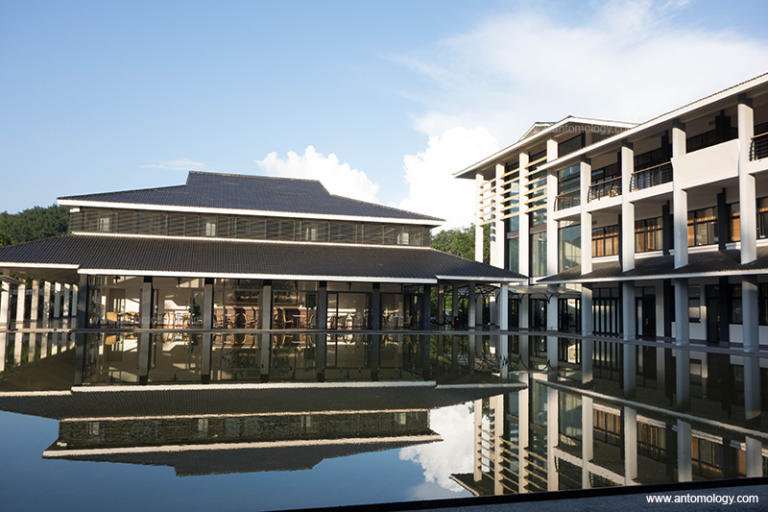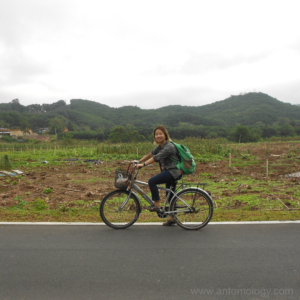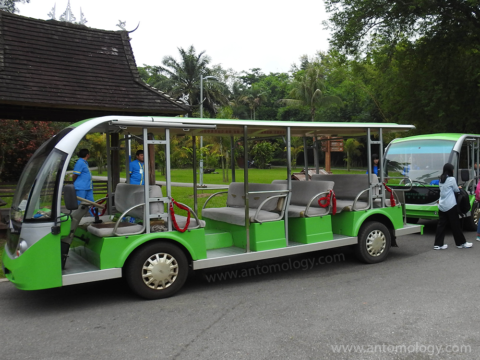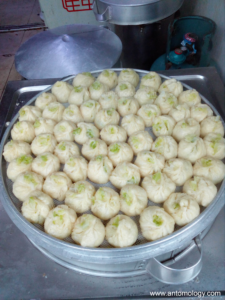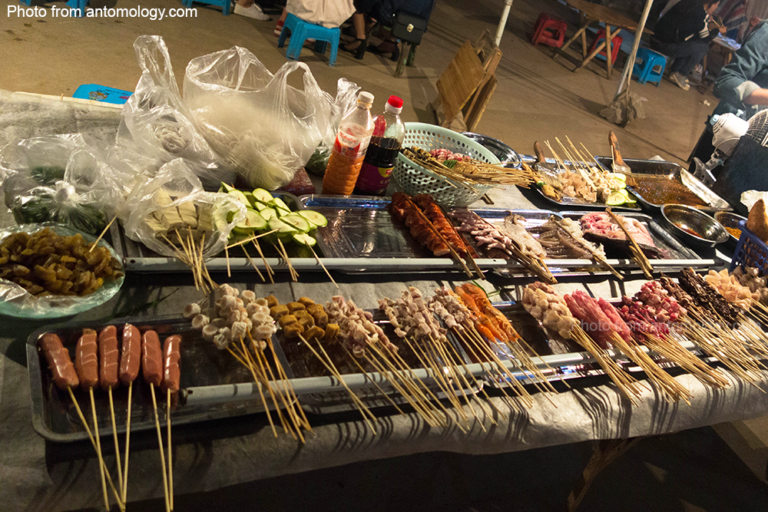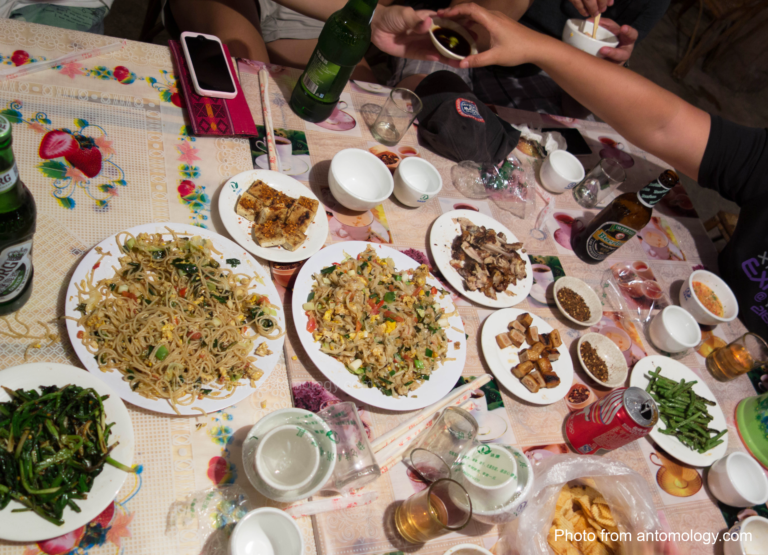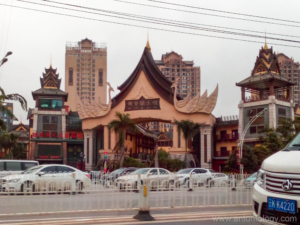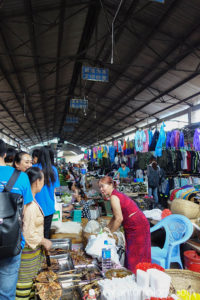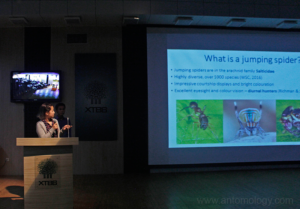| About Us |
| News |
| Announcement |
| Research |
| Conservation & Horticulture |
| Public Education |
| Graduate Study |
| Scientist |
| International Cooperation |
| Resources |
| Annual Reports |
| Publications & Papers |
| Visit XTBG |
| Societies |
| XTBG Seminar |
| Open Positions |
| 4th XSBN Symposium |
| CAS-SEABRI |
| PFS-Tropical Asia |
| Links |
| Location:Home > Visit XTBG > Information |
| The Advanced Fieldcourse in Ecology and Conservation (AFEC-X)--My Experience ({Part 2) |
|
I apologise for the lack of informative images, I didn’t realise I’d be writing a blog post about AFEC, so I didn’t take many “mundane” day-to-day photos. AccomodationIn our year (2016) we stayed at the “Li Du Hotel” (Note: This link is for a Chinese website, there is no English site but you can see photos at least!). I think past AFEC cohorts have also stayed here. The pictures are pretty accurate, however the accomodation was less shiny and older. It’s perfectly functional as a place to stay – but it’s no 5 star hotel. The beds were quite hard – which is common in Chinese hotels. I reckon some people may find it hard to sleep on the hard beds but honestly I had some of the best sleeps in that bed.. but maybe that’s because I was so exhausted from each day, haha. Note that the rooms have either a squatting or western toilet. I think it’s luck of the draw depending on what floor you’re on. The shower and the toilet is also the same room (woo, asian style!) – images can be found on the linked website. Each room has two people in it, if there’s an odd number of guys or gals then they get a room to themselves. I think roomies are randomly assigned, but if people are coming from the same institution or country they will put you together. If you are a joining AFEC on your own (like I was!) you will be paired with another singleton. Washing clothes: You can wash clothes on the top floor, for free. You can hang dry your clothes on the top floor as well or in your room. Had no issues with clothes going missing. Language
Whilst you’re on the XTBG campus, English is fine to communicate with fellow students and teaching staff. However, in Menglun town, being able to read and speak Chinese (Mandarin) will be a great asset. A friendly disposition and a willingness to learn will get you very far. Most residents of Menglun speak Dai (the language of the ethnic group that lives in the area) and Mandarin, no English. The people who live and work in Menglun are used to foreigners, so they will be patient when there is trouble with communication. I advise that you make friends with a Chinese speaking student (an AFEC student and/or XTBG student) and ask them to teach you some basic Chinese. You will have 6 weeks immersed in a town where you can only use Chinese so it’s a perfect opportunity to learn some Mandarin. Only a minority of AFEC students spoke any Chinese – so don’t worry too much about the language barrier, you will find a way to get around it! Getting Around XTBG
XTBG will provide you with bikes to get around. The bikes are run of the mill push bikes. There were a few mountain bikes with gears, but you are basically randomly assigned bikes so you will have to trade with a friend if you want something more specific. I would recommend getting a bike with a basket, it’s so handy. You will be provided with a lock for your bike, but after the first week I stopped locking it – even when we went to the shopping centre I would leave the bike in the front. There are just so many bikes around Menglun and XTBG, so I’m unsure why someone would want to steal your specific bike… although if your bike is stolen I’m unsure what happens since the bikes belong to XTBG. It took me about 20 minutes to cycle from the hotel to XTBG. There are a few small hills to go up on the way there, but on the way back you get to go down hill.. which makes it all worth it.
The shuttle bus looked a bit like this. Some people who didn’t know how to cycle walked to the gates of XTBG (20 minutes) and took a shuttle bus, so there are options for people who can’t cycle. The shuttle only leaves once an hour (there’s a timetable) so it means you are less flexible with when you can leave… although a lot of students did use this option, especially near the end when they were tired of 6 weeks of cycling, haha. Of course you could also walk from the hotel to XTBG, it would take approximately an hour. Internet AccessInternet in China is restricted. You cannot access a lot of websites, such as Google or Gmail or Instagram or Facebook. I would suggest organising a VPN, it’s possible your university may provide one for you to use. People at XTBG can help you organise a way to be able to access things like Gmail if you need. You can look online for more information on what to expect regarding restricted internet access at XTBG. FoodBreakfast: The course gave us a stipend to purchase breakfast in town. The stipend was enough to cover breakfast for every morning. There is plenty of great food in town for breakfast. My habit was to purchase buns from a local bun store (the students at XTBG will be more than happy to show you where it is), which was really cheap. I think it was around 0.5 RMB per a small bun. Lunch and dinner were covered by the meal fee (as discussed in Part 1 of this post). Lunch: Lunch was held in the middle of the day, and was catered at the canteen. The food was served buffet style. There were around 4-6 options for food, and whilst there were some vegetarian options, they were fairly.. bland. For instance, steamed egg or boiled leafy greens. I had vegetarian friends at AFEC, and they struggled to enjoy lunch. If you are vegetarian I think you’ll struggle (I’m sorry but I want to be honest). You can purchase a bunch of fruit or buns in the morning to tide you through the day. Overall I found the food at lunch to be edible, but many people weren’t too keen on it. You could probably bring some kind of sauce mix or sriracha or something and mix it with the canteen food to make it more palatable. The non-vegetarian options were OK, for instance sometimes we had fried chicken or pork belly. Dinner: Dinner was mainly the same as lunch. On some occasions we would borrow some electronic bikes and go into town to buy food. Or order food from one of our friends who were going into town to get food. It didn’t happen often, but it was a welcome surprise.
After dinner: A number of us would go out for a late night BBQ, the tastiest way to spend your evenings in Menglun town. The BBQs are amazing – and the ladies who do the cooking are very happy to make vegetarian options. Actually, many of the foods are vegetarian friendly. In the above image there is vegetarian fried noodles (Chow Mi Gan), fried tofu and fried veggies. All of it very delicious. The food is quite affordable when split between a group of people. I still dream of this food. It was so great. Snacks: Snacks were also great. The organisers of AFEC purchased snacks for us, such as dried dates and roasted almonds. Fresh fruit was bought daily from the market for the group, but you can also purchase fruit yourself if you’d like. Snack time was great for vegetarians. RecreationThe class schedule is quite packed, and there is barely any time to go anywhere further than 20 minutes from XTBG. Between classes and after lunch we would sometimes play badminton, soccer or frisbee. Most of our letting off steam time was at night, after dinner. Sightseeing
A cool gate in Jinghong We only got a single day off during the whole course, it was pretty full on. On that single day off most of my friends went to Jinghong (closest big city) for the day to do some gift shopping. You will be given slightly more free time during the “independent research project” portion, and you will have more opportunity to go around XTBG and see a bit more of it. There will be many opportunities to go exploring at night, if you are into looking for herps and other night dwelling animals. However, overall there are no large chunks of recreation time. But that doesn’t meant there is no time for fun, you’ll find time to have fun with your fellow AFEC students. Shopping There are plenty of shops in the town to get your every day needs such as laundry detergent etc. You should really only bring essentials like clothing and comfort items (like snacks or your favourite shampoo). You can buy most things in Menglun. There’s not much in the way of souvenir shops. Apparently there is one somewhere in XTBG, but I didn’t end up going there. If you want to buy gifts for friends and family back home there isn’t much opportunity, except for that single day off (as mentioned above). However, China is extremely well connected in terms of online shopping, so if you’d liketo purchase something online and get it to delivered to XTBG that is definitely possible.
BBQs & Bars There are a few bars in town, but I think I only went to 3 different bars while we were in Menglun. I only went to each one once. I would mostly drink at the BBQ places, of which there were many in Menglun. We tried a few different places but soon we had a few places that were our favourite. There are karaoke places in Menglun, which have surprisingly modern selection of music. Plenty of Western music. If you’ve ever done Chinese style karaoke you will be fine. ClassesYou get 6 weeks of classes. The classes go from 9am to 9pm. Often we had lectures for most of the day, and sometimes an activity in the afternoon (such as a group activity, lab visit or a small practical). These days were broken up by a multi day workshop on using the program “R” for statistics (taught by Dr. Kyle Tomlinson) and an introduction to the use of arcGIS (taught by Dr. Alice Hughes). The classes were hit and miss, but overall as a person who is going into a Masters program I think it was useful. The R course and the GIS course was useful, and I certainly don’t regret attending. The intense 9am-9pm classes were a bit much, but I understand that they want us to learn as much as we could in the 6 weeks we spent there. I think I covered my opinion of the classes a bit better in Part 1 of the this post. In the final two weeks we would split into groups to work on our Independent Research Projects. Independent Research ProjectI thought of this as the most exciting part of the course. You will have an opportunity to put everything you’ve learnt in lectures to the test. You will form groups of 3-5 students to work on a project for a hard core 2 weeks. On the final day of the course there will be a symposium, and guests will be invited. It’s a great opportunity to practice a research presentation. You will also be expected to write a report, and in previous years groups have actually published their work! When you get to XTBG you should start to think about what kind of project you’d like to do. I think it’s best to do something that’s not related to what you study, that way you can learn new things. The XTBG environment is very supportive so it’s a good opportunity to take if you’d like to expand your horizons and try something new. ConclusionI had a fantastic 6 weeks in Yunnan at AFEC-X, I would definitely encourage people to apply. I made amazing friends, learnt amazing things and ate amazing food. Attending AFEC was definitely a milestone in my life. If you can spare the time (and cost) to go, you should really consider it. It’s probably one of the only field courses of it’s kind in SE Asia. I think you can tell from my posts how much I enjoyed my time there. I think it’s a once in a lifetime opportunity. Honestly, feel free to contact me and I’ll be very happy to answer any specific questions. I hope my posts have helped you make a decision about whether or not to apply. Note: Everything mentioned in this post is my own opinion. This information may also be out of date or inaccurate for future field courses. Please contact someone at XTBG if you would like more information, but also feel free to contact me if you need help – I can put you in contact with someone who can help you if I can’t! |
| Appendix Download |
|
|
